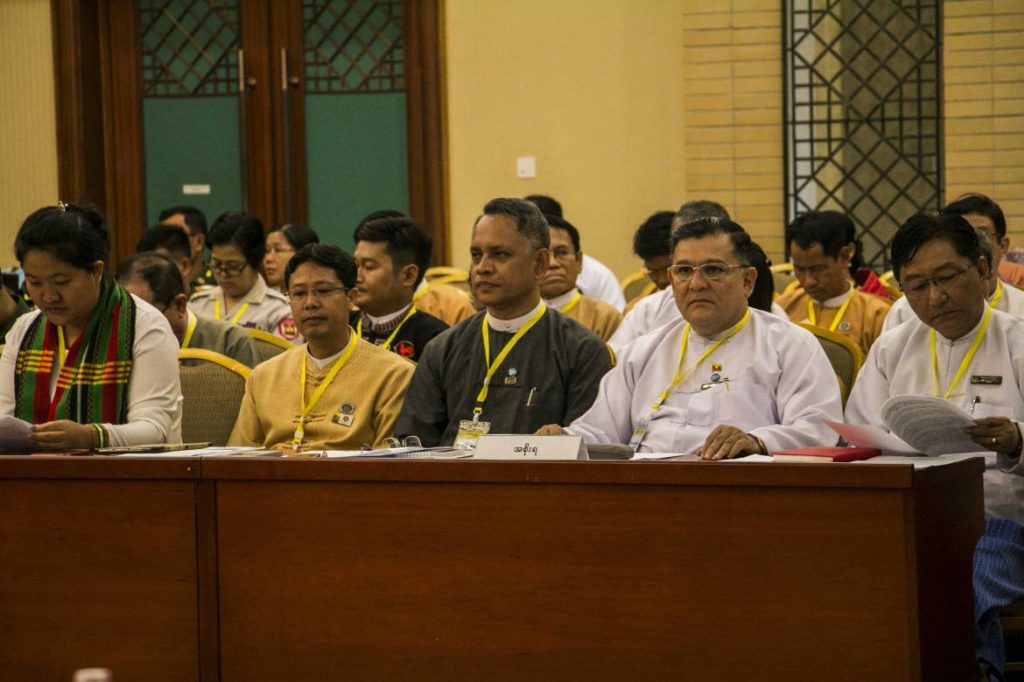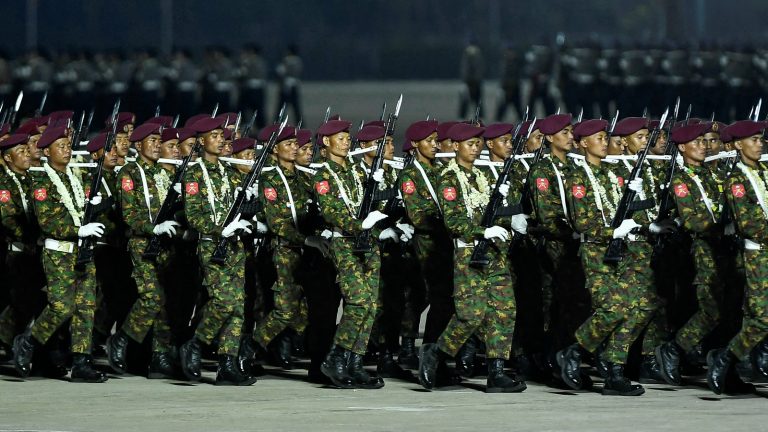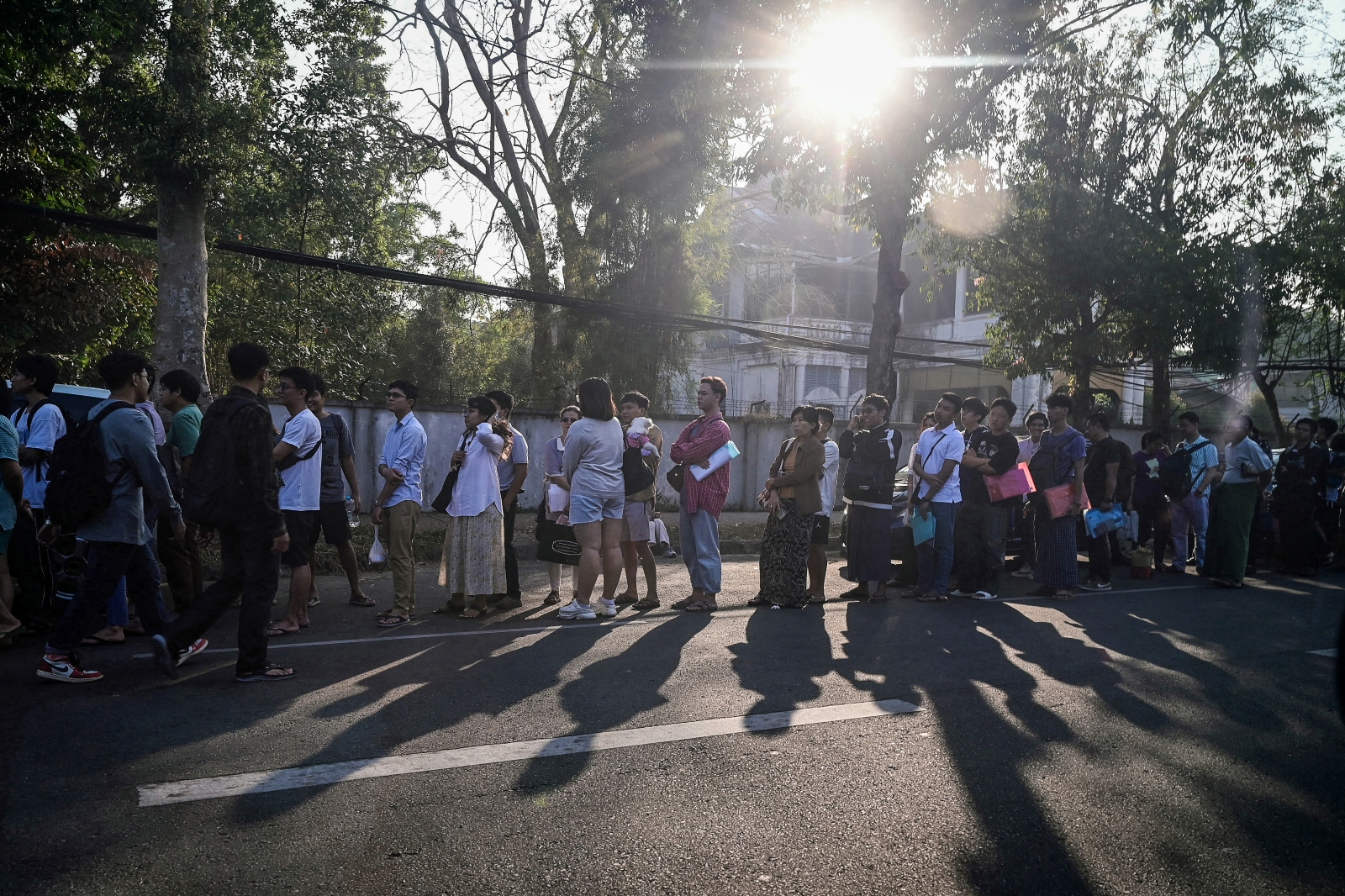The eight points that were not agreed upon at the Panglong conference last month constituted most of the key federalism “concessions” from the government and military to ethnic minorities.
By NYAN HLAING LYNN | FRONTIER
WHICH IS more important: quantity or substance? When it comes to the principles approved at the 21st Century Panglong peace conference, the government apparently thinks the overall number is most important.
After the conference concluded on May 29, it trumpeted the fact that participants had agreed on 37 principles that would be included in the future Union Peace Accord. This, State Counsellor Daw Aung San Suu Kyi said, was a major step forward.
But there was relatively little of actual substance in the 37 principles.
Certainly, few could be considered concessions by the government and military to ethnic minorities. Most of the proposed principles that attracted attention prior to the conference – such as constitutions for states and regions, and equality between all ethnic groups – were among the eight that were not agreed upon at Panglong.
Support more independent journalism like this. Sign up to be a Frontier member.
The following principles, all classified as political, were not approved:
- There shall be no special privileges or restriction of rights for any ethnic group.
- A Union that allows the right to the self-determination within a federal framework must be created in accordance with the results of the political dialogue.
- Constitutions for states and regions must comply with the 2008 Constitution and must guarantee basic freedoms, basic rights and democratic practices.
- States and regions must guarantee the right to self-administration in each of the following sectors: politics, economy, social affairs, culture and heritage.
- The right to self-determination of the national characteristics and culture of ethnic people is their birthright.
- The states and regions shall be allowed to practise self-determination as prescribed in the 2008 Constitution.
- No part or territory of the Union shall ever secede.
- The states and regions where the right to self-determination is allowed shall prescribe constitutions and laws that do not exceed the 2008 Constitution. There shall be power sharing between the states and regions and the Union in accordance with the constitution.
A further principle, on the establishment of a “one and only Tatmadaw” – the only principle focused on security affairs – was discussed by conference participants, but was neither agreed upon nor mentioned in any official statements.
During the conference, attention focused on the principle related to non-secession. Some ethnic armed groups and ethnic minority political parties objected to the wording of this principle.
Dr Aye Maung, chairman of the Arakan National Party, said there were objections to the commanding tone.
U Sai Kyaw Nyunt, associate secretary of the Shan Nationalities League for Democracy, said his party and some other participants had lobbied for a stronger guarantee on self-determination in exchange for agreeing to non-secession.
According to Dr Salai Lian Hmung Sakhong of the Chin National Front, they proposed amending the principle to make it conditional, by adding, “if there is self-determination and ethnic equality in the Union” in front of “No part or territory of the Union shall ever secede”.
Aside from the wording, there were also concerns that a decision on the clause might discourage non-signatories from later joining the peace process.
So why were the other seven principles dropped? The government and military insisted that they were inter-related and therefore a package. If no agreement could be reached on non-secession, then the other seven could not be approved either.
Another controversial development was the decision not to vote on proposed principles and instead adopt them through consensus.
On June 1, SNLD leaders held a press conference at which they criticised this decision and several other issues related with the peace process, including restrictions on the holding of national-level political dialogue meetings.
“Instead of voting at the conference, a meeting of UPDJC was held where most of the agreements were discussed and taken, which is not in line with the dialogue framework,” Sai Kyaw Nyunt was quoted as saying.
Speaking to Frontier via telephone on June 5, Sai Kyaw Nyunt urged the government to include all ethnic armed groups – signatories and non-signatories to the Nationwide Ceasefire Agreement – in the peace process.
“The last peace meeting decided the 37 points but did not include non-signatories of the NCA. The government needs to be flexible in this peace process and it would be easier to be all-inclusive and include the non-signatory groups,” he said.
He added that under the current context – with one group signing the NCA and another looking to forge a new path to peace – the peace process would become more and more difficult to manage.
“The peace process needs an informal negotiator who can [negotiate] between the leaders of each organisation. This will be more effective in moving forward the peace process in Myanmar.”
The eight points not agreed upon in Nay Pyi Taw last month will be discussed further over the coming six months and resubmitted for consideration at the next Panglong meeting, which is scheduled to be held in six months’ time.
Hein Ko Soe also contributed to this report. TOP PHOTO: Delegates at the 21st Century Panglong conference take part in an economic forum. (Nyein Su Wai Kyaw Soe | Frontier)







